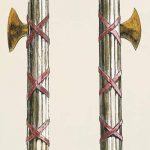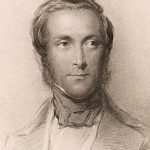
Thomas Cromwell
This early sixteenth century politician has had a mostly stinking press since his execution at the order of his master Henry VIII. In the 1960s BBC TV serial The Six Wives of Henry VIII Cromwell is played masterfully by Wolfe Morris as a wicked and unscrupulous schemer, of sinister mien, probably troubled by evil spirits. In the splendid film written by Robert Bolt called A Man for all Seasons the part of Cromwell is acted, again with consummate mastery, by Leo McKern.
Fred Zinneman’s direction ensures that we can be in no doubt about who is the biggest villain in the piece. In the same movie Robert Shaw plays the young Henry as a friendly athlete given to affection for Thomas More, accustomed to visiting his household at Chelsea. But Cromwell is the ‘baddie’. The film won a few merited Oscars, though in my opinion it deserved many more. Paul Scofield is alarming and unforgettable as More; Nigel Davenport superb as the Duke of Norfolk, and John Hurt steals every scene with his ‘Richard Rich’.
English novelist Hilary Mantel sees Thomas quite differently. In the first two of her hoped-for trilogy, Wolf Hall and Bring up the Bodies, interpretation of Henry’s hatchet-man is entirely sympathetic. Perhaps due to Miss Mantel’s exquisite writing, we are very nearly convinced that the real villain was Thomas More. The novelist will not allow the English-speaking public to continue seeing Henry the King, or Thomas Cromwell his Chancellor, nor Richard Rich, nor even the dreadful Wriothesley as bad men. I, for one, am breathless in anticipation for the third novel in this astounding series. It is a masterpiece of improving reconstruction of history.
Another historian and author who sees Cromwell in a different light is Derek Wilson. I shall quote directly from his 1978 best seller England in the age of Thomas More.
“There was another man who knew better, the man behind the growing volume of statutes and royal injunctions which revolutionised the religious life of the nation, the man who dominated English life for a decade and achieved more in such a brief time than any British statesman before or since.
“Thomas Cromwell was a political realist unhampered by any sentimental attachment to ancient forms. Where More saw a pope with 1500 years of authority behind him, Cromwell saw a foreign prince controlled by the imperial house of Habsburg who wielded a totally unjustified power in the free nation state of England. While More longed for the religious life and venerated those who had immured themselves within an atmosphere of prayer and contemplation, Cromwell resented the idle communities of monks and nuns who kept a vast, stagnant treasure while the government was in danger of failing for lack of funds. More cautiously accepted the need for reform of educational standards among the clergy. Cromwell knew that nothing would suffice but the sweeping away of all the paraphernalia of images, shrines, holy days, doctrines of purgatory and penance by which an unworthy priesthood had dominated the life of the people, and the setting forth of an English Bible which would be a light of learning and true doctrine for clergy and laity alike. Thomas More was content with a modest pruning of the ecclesiastical tree. Thomas Cromwell was intent on cutting back to the old wood and grafting on a new and more vigorous stock.”
I see. Nevertheless, King Henry VIII also did some pruning – the heads of both More and Cromwell: hero and villain, or villain and hero? We must all hold our opinion. Was Elizabeth I a glorious Queen, or a foul-tempered old harridan? Did George III lose the American colonies because of insanity or did he sympathise with the colonists? Did Louis XVII really die in the insanitary confines of the Temple Prison or was he spirited away by a ‘scarlet pimpernel’ to settle down (and breed) in lovely Massachusetts? There will be plenty of recividists now and in the future to tell us.









Leave A Comment